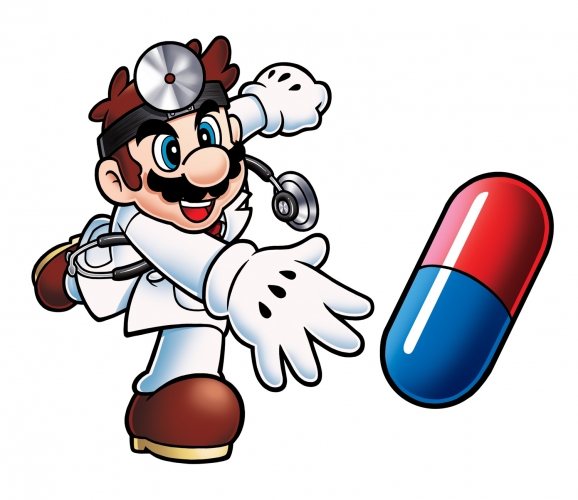Healthcare Games Improve Lives
Technology is changing the face of healthcare as we know it. The typical habit of only going to a doctor when you have an issue is slowly fading. The medical field is now moving towards preventative care, and for good reason: according to the Partnership for Prevention, over 100,000 lives could be saved in the U.S. every year if the gaps in just 5 preventative health services were closed. Preventative healthcare improves general well-being and can save lives by catching a disease or condition before it’s too late.
And Gamification is making services more accessible, fun, and impactful through preventative healthcare games.
It’s no surprise that positively changing daily behaviors can help prevent disease and disorders. Eating healthier foods, maintaining an exercise routine, and remembering to complete a prescription medication regiment can ensure you enjoy a long, healthy life. While we intend to remain on top of these things, the reality is that most of us are likely to fall short of staying consistent with these habits. However, with the help of gamified tools and platforms, healthy regular activities can be fun and easier to maintain.
Here are 10 amazing companies that are changing and (even saving) lives through preventative healthcare games.
Healthcare Game #1: Ayogo
Patients with chronic conditions must be proactive about maintaining and improving their health and overall wellness. There are limits to what doctors and caregivers can accomplish on their own.
This is why a company called Ayogo has designed an app called Empower to help these patients develop new behavioral habits specific to their condition. This project received the support of partnerships with:
- Joslin Diabetes Center (Harvard Medical School)
- Sanofti Aventis (USC’s body imaging center at the Keck School of Medicine)
- Diabetes Hands Foundation
With daily prompts to help remind them, patients are required to check in every day to record their behaviors. They are assigned small activities, games and surveys and rewarded for positive changes (Core Drive #2, Development & Accomplishment).
Over time, these behaviors turn into new lifestyle habits which help patients make better progress and develop more autonomy in terms of their health.
Healthcare Game #2: Mango Health
Mango Health has designed an app which has been featured on CNN, Self, and LA Times. With this tool patients can actually earn monetary rewards simply for taking their medication.
Remembering to take one’s prescription isn’t always easy when you’re dealing with school, work, errands, phone calls, appointments and emails.
To address this, Mango Health’s app issues reminder alerts. Patients earn points every time they take their medication (Core Drive #2, Ownership & Possession). As they stay on schedule, they earn larger rewards such as $5-$10 gift cards to Target and GAP. Another form of reward even includes dollar donations to charity organizations like ASPCA. Imagine helping an animal in need just by taking your medication!
Healthcare Game #3: Reflexion Health
Reflexion Health aims to “reimagine the physical therapy experience.” Co-founder and CMO, Ravi Komatireddy explains the basis for his company, “As a physician, I saw a big problem with traditional PT (physical therapy), namely that it wasn’t being done by patients.”
Reflexion Health developed a virtual instruction platform to solve this issue. In the comfort of their own home, patients watch an animated instructor model a particular exercise on their t.v. or computer screen.
They are prompted to follow the instructor in doing the same exercises. Motion guided technology is then able to compare the patient’s performance to the sample and point out any needed adjustments (Core Drive #2, Development & Accomplishment).
Physicians can see if their patient is following through with the exercises by following their progress. Issues with form can be then corrected as needed.
Healthcare Game #4: Respond Well
Respond Well’s technology is also aimed at helping physical therapy patients consistently perform their rehab exercise routines.
Like Reflexion Health, Respond Well’s platform uses motion sensor technology. Their particular application utilizes Microsoft’s Kinect and offers a wide array of different features to keep patients engaged and their doctors informed of their progress.
Patients can choose their virtual animated trainer, music, and 3D environment (Core Drive #4, Ownership & Possession). They earn points for proper form and can set up challenges as well as invite their friends and family to participate (Core Drive #5, Social Influence & Relatedness).
The Kinect not only monitors their motion, but also counts repetitions. Data is stored in cloud system for analysis and reporting purposes.
Healthcare Game #5: Cohero Health
The consequences of forgetting to take one’s medication can be particularly dire for young asthma patients. But thanks to Cohero Health, there is now an app called Asthma Hero to help young patients stay on schedule.
The app connects to a blue tooth sensor that attaches to the inhaler with a strap. This unit communicates with the mobile app to keep track of when the medication was administered and whether or not it was taken properly.
Patients or their parents can specify:
- the number of times the inhaler needs to be used
- the number of puffs that need to be taken
Reminder notices are then issued based on these settings.
Asthma Hero lets the patient choose and name their own hero character and rewards points for adherence to the treatment schedule (Core Drive #4, Ownership & Possession).
Information is also stored on a cloud server. The physician is therefore able to stay informed about relevant details associated with the patient’s compliance and usage of the medication.
Healthcare Game #6: Pact
Pact is an app funded by the founder of Guitar Hero. Users literally make pacts with themselves to consistently exercise and eat healthy. And they can get paid real dollars to do so.
The powerful driving force of this preventative healthcare game is that they can actually lose money when they fall off track. Therefore this is a great example Core Drive #8 (Loss & Avoidance) in action. The idea of losing money is extremely compelling and scary. After all, this is how parking tickets work. The same dynamic operates in Pact.
Players specify how much money they agree to be deducted from their credit card or Paypal account for every day that is missed (e.g. $5). This money will then go into a collective pool that issues payouts to those who do reach their goals (talk about an interesting combo of Core Drive #5, Social Influence & Relatedness and Core Drive #2, Development & Accomplishment).
Unfortunately, the game is set up to where losses are much bigger than gains. Players can chose to lose anywhere from $5-$10. However, meeting goals will only earn $0.30 to $5 a week. Yet this is still enough to perhaps indulge in an extra Starbuck’s visit.
Healthcare Game #7: HubBub
HubBub’s tagline is “Play Well Together.” It is designed to help companies improve the health of their employees and overall productivity. After all, better health equates to sharper thinking and more energy. Yet these optimal states tend to be undermined by the typical office lifestyle of primarily sitting throughout much of the day.
HubBub believes they have the answer to this issue. They offer an innovative alternative to conventional health programs in terms of flexibility, features and most importantly, fun.
Users can even invite their friends and family in addition to playing with their co workers (Core Drive #5, Social Influence & Relatedness). This enables a lively social environment where players can encourage each other and even celebrate successes with virtual fist pumps.
Challenges can either be created or chosen. Examples include:
- eating something orange
- walking 8000 steps with a friend
Check-ins to record small achievements are noted. And over time, players can earn badges.
Healthcare Game #8: Cog Cubed
Cog Cubed is a company that develops healthcare games for researchers and clinicians. They develop applications which target a wide range of cognitive processes. Their particular emphasis is on executive functioning. This has to do with performing goal-directed behavior which is often impaired in patients with Alzheimers, Traumatic Brain Injury, Autism, Anxiety and ADHD.
The current flagship product of Cog Cubed is Groundskeeper. Unlike games presented as apps, websites or video consoles, Groundskeeper involves a set of hand held cubes with animated digital graphic interfaces. This unique technology was developed by MIT’s Media Lab.
Players solve problems as they physically manipulate the cubes (Core Drive #3, Empowerment of Creativity & Feedback).
While Groundkeeper is designed to be fun and engaging, it’s main intent is to assess individuals for ADHD. Performance data is collected to measure distractibility and attention These are analyzed and compared with those who actually have ADHD and normal executive functioning skills.
9.
Healthcare Game #9: Akili
Akili has designed an assessment game called Evo. It’s objective is somewhat similar to Cog Cubed’s Groundskeeper. Evo is mainly targeted for the purpose of detecting Alzheimer’s disease.
Diagnosing this condition normally requires an expensive PET scan to find amyloid plaques in the brain. But, Evo may be a more cost effective way to tell if someone has Alzheimers.
Like Cog Cubed, researchers created standardized sets of game performance data. With Evo, this includes normal populations versus individuals with Alzheimers.
The game design for Evo tests players on how well they cope with cognitive interference (distractions) which is important for functioning in real life, especially when it comes to self care and safety.
During the game, the player tilts the ipad or iphone device in order to steer an alien down a river. Distractions appear in the form of a fish or a bird. And players need to tap the screen every time this happens (Core Drive #2, Development & Accomplishment). This performance data is then collected, assessed, and measured against the predetermined standards.
Healthcare Game #10: Synandus
Synandus offers “simulation learning technology” for patients and students. Currently, one of their applications is for patients with COPD (Chronic Obstructive Pulmonary Disease), a progressive disorder where breathing becomes increasingly difficult.
The dynamic visuals give a peak into specific areas of the body. And users are able to actually see what types of physiological changes happen when they make certain choices (e.g. drug therapy, smoking etc.) or expose themselves to various environmental factors (Core Drive #7, Unpredictability & Curiosity).
This innovative educational technology not only benefits actual patients but students of the life sciences (e.g. medical school) as well.
Healthcare Games On The Rise
In the spirit of helping to make the world a better place, healthcare games are growing to meet real needs. And with the help of gamification, it is now possible to experience fun and joy in developing a healthy lifestyle, while preventing diseases and disorders before its too late.
Please share any other preventative healthcare games that excite you below.
Related





